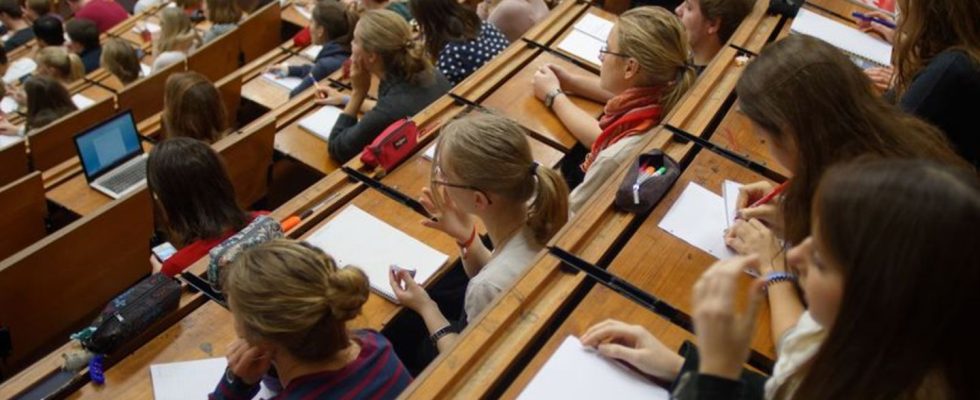Diploma
OECD study: Growing educational gap among young adults
Around 37.5 percent of 25 to 34 year olds have a university degree or similar qualification. photo
© Swen Pförtner/dpa
The decline in vocational training is particularly severe in Germany. How did this come about and what effects does the development have?
According to an OECD study, there is an increasing educational gap among young adults in Germany: the proportion of those who have a high level of qualification such as a degree has increased, but so has the proportion of those who have at most a middle school qualification.
In 2015, around 13 percent of 25 to 34 year olds had no further qualifications such as vocational training; in 2022 it was 16 percent. In 2015, 30 percent of this age group had a university degree or similar degree; in 2022 it was 37.5 percent. The increase on both sides comes at the expense of professional qualifications in between: the proportion of young adults with traditional vocational training fell from 51 to 38 percent.
Low educational qualifications are a concern
The figures are in the OECD’s annual “Education at a Glance” report. This is a comparison of educational data from OECD countries and various partner countries. The decline in vocational training Germany is the largest in all OECD countries, it was said.
The State Secretary in the Federal Ministry of Education, Jens Brandenburg (FDP), was concerned about the growing group of young people with low educational qualifications. “16 percent – that’s almost 1.7 million young adults who are not available as urgently needed skilled workers,” he said at an online press conference. These young people have fewer chances of good employment and sufficient income.
The head of the “OECD Berlin Centre”, Nicola Brandt, said that funding must primarily start in the youngest years in order to prevent young people from falling behind and ending up without a good qualification. She spoke of the particular pressure that the German education system is exposed to and cited “more migration” than in other countries and also the shortage of teachers.

